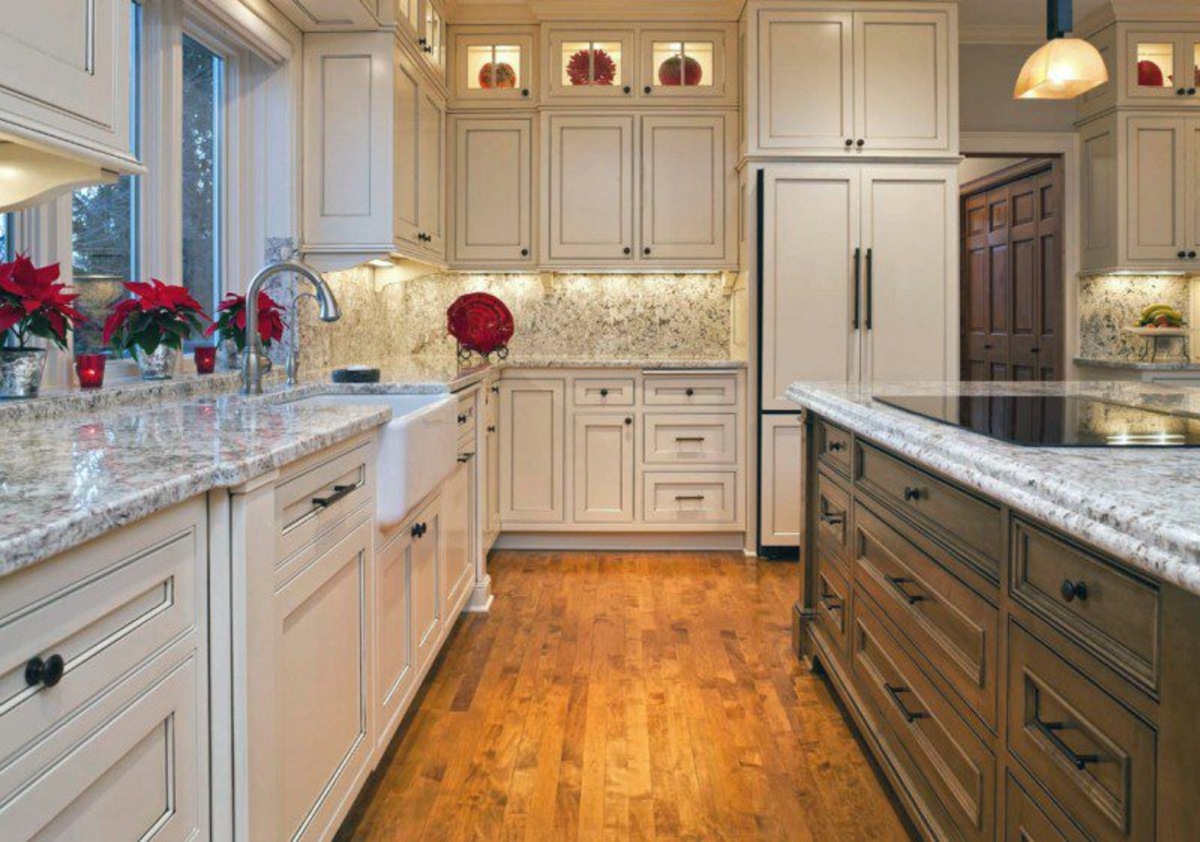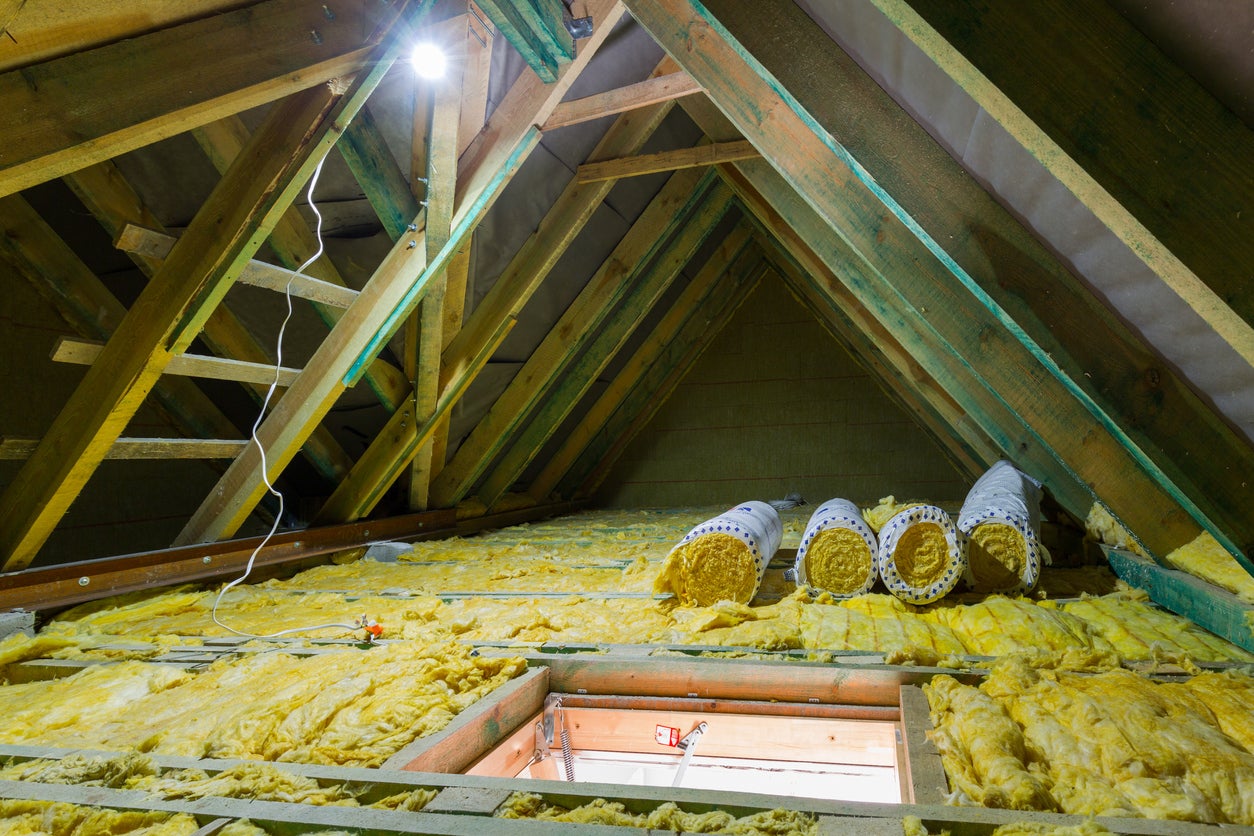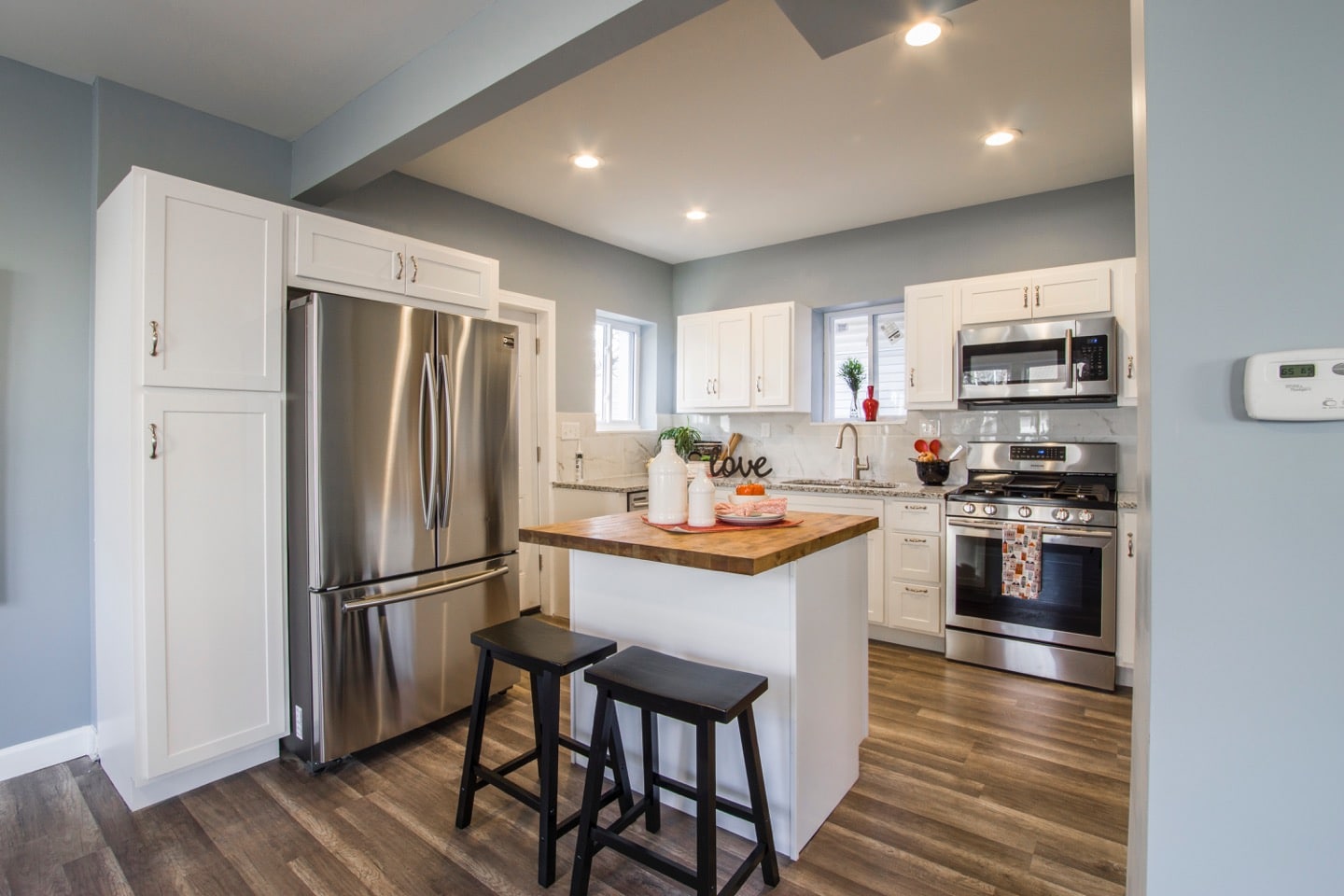Home>Renovation & DIY>Home Renovation Guides>What Kind Of Expenses Can I Write Off For Remodeling A Home


Home Renovation Guides
What Kind Of Expenses Can I Write Off For Remodeling A Home
Modified: January 3, 2024
Discover the essential expenses you can deduct for home remodeling. Our comprehensive guide covers all you need to know about writing off renovation costs. Find out more!
(Many of the links in this article redirect to a specific reviewed product. Your purchase of these products through affiliate links helps to generate commission for Storables.com, at no extra cost. Learn more)
Introduction
Embarking on a home remodeling project is an exciting endeavor that not only enhances the functionality and aesthetics of your living space but also presents opportunities for potential tax deductions. Understanding the intricacies of tax write-offs for home renovations can significantly impact your financial planning and decision-making process. As you delve into the realm of home remodeling, it's essential to grasp the nuances of tax deductions to ensure that you maximize your benefits while complying with relevant regulations.
In this comprehensive guide, we will explore the various expenses that can be written off for home remodeling, shedding light on the deductions that may be available to you. By gaining insight into the tax implications of your renovation endeavors, you can make informed choices and potentially alleviate the financial burden associated with improving your home. Let's delve into the realm of tax deductions for home remodeling and unravel the potential financial benefits awaiting savvy homeowners.
Key Takeaways:
- Certain home remodeling expenses, like energy-efficient upgrades and home office renovations, may qualify for tax deductions, potentially reducing your overall tax liability and providing financial relief.
- It’s important to keep detailed records of remodeling expenses, differentiate between eligible and ineligible costs, and seek professional guidance to maximize potential tax benefits while complying with IRS regulations.
Understanding Tax Deductions for Home Remodeling
Before delving into the specific expenses that can be written off for home remodeling, it’s crucial to understand the concept of tax deductions in this context. Tax deductions for home remodeling pertain to the expenses that may be eligible for reducing your taxable income, thereby potentially lowering your overall tax liability. These deductions are often governed by specific criteria and regulations set forth by the Internal Revenue Service (IRS) in the United States.
It’s important to note that tax deductions for home remodeling are typically associated with properties that are used for personal purposes, such as a primary residence, and not for investment or rental properties. Additionally, the IRS imposes certain limitations and guidelines regarding the eligibility of expenses for tax deductions, emphasizing the necessity of adhering to these regulations to avoid potential issues.
By comprehending the fundamental principles of tax deductions for home remodeling, you can navigate the complexities of the tax system with confidence and clarity. This understanding empowers you to identify the expenses that may qualify for deductions, thereby optimizing the financial benefits of your home renovation efforts. As we proceed, we will delve into the specific expenses that can potentially be written off for home remodeling, equipping you with valuable knowledge to make informed financial decisions.
Expenses That Can Be Written Off for Home Remodeling
When considering tax deductions for home remodeling, it’s crucial to discern the specific expenses that may qualify for write-offs. While individual circumstances may vary, certain common expenses incurred during the remodeling process can potentially be eligible for tax deductions. It’s important to consult with a tax professional or accountant to ensure compliance with relevant regulations and to determine the applicability of these deductions to your unique situation.
1. Home Office Renovations: If you utilize a designated area of your home as a home office for business purposes, certain renovation expenses related to this space may be eligible for tax deductions. This may include costs associated with the installation of built-in shelving, lighting upgrades, or structural modifications to accommodate your home office needs.
2. Energy-Efficient Upgrades: Investing in energy-efficient improvements, such as the installation of solar panels, energy-efficient windows, or insulation upgrades, can potentially qualify for tax credits or deductions. These upgrades not only contribute to environmental sustainability but may also offer financial benefits through tax incentives.
3. Medical Necessity Modifications: Renovations made to accommodate medical necessities, such as installing wheelchair ramps, modifying bathrooms for accessibility, or adapting living spaces for medical equipment, may be eligible for tax deductions if they meet the criteria outlined by the IRS.
4. Capital Improvements: Certain capital improvements that enhance the value of your home, such as adding a new room, renovating a kitchen or bathroom, or upgrading the HVAC system, may qualify for tax deductions. It’s essential to differentiate between routine repairs and capital improvements, as the latter may have potential tax benefits.
5. Home Security Enhancements: Expenses related to enhancing the security of your home, such as installing security systems, motion-activated lighting, or reinforced doors and windows, may be considered eligible for tax deductions under certain circumstances.
It’s important to maintain detailed records and receipts for all relevant expenses incurred during the remodeling process to substantiate your claims for tax deductions. Additionally, staying informed about changes in tax laws and regulations can help you leverage potential deductions effectively, ensuring that you derive maximum financial benefits from your home remodeling endeavors.
You can write off expenses for home remodeling if it’s for medical purposes, to improve accessibility for disabled individuals, or for home office use. Always consult a tax professional for specific advice.
Expenses That Cannot Be Written Off for Home Remodeling
While there are various expenses related to home remodeling that may qualify for tax deductions, it’s equally important to recognize the limitations and expenses that cannot be written off for tax purposes. Understanding these exclusions can help you manage your financial expectations and make informed decisions regarding your remodeling projects.
1. Personal Use Items: Expenses incurred for personal use items, such as furniture, curtains, rugs, and other decorative elements, are generally not eligible for tax deductions. These items are considered personal property and do not contribute to the structural or functional improvement of the home.
2. Normal Repairs and Maintenance: Routine repairs and maintenance, such as painting, fixing leaks, or replacing broken appliances, are typically not eligible for tax deductions. These expenses are considered part of the ongoing upkeep of the property and are not categorized as capital improvements.
3. Home Improvement for Profit: If you are renovating a property for the purpose of selling it at a profit, the expenses incurred may not qualify for tax deductions. These types of renovations are often associated with investment properties and are subject to different tax considerations.
4. Outdoor Landscaping: While enhancing the outdoor landscaping of your property can add aesthetic value, expenses related to general landscaping, gardening, or the installation of decorative elements are typically not eligible for tax deductions. These improvements are often considered as enhancing curb appeal rather than directly contributing to the structural or energy efficiency aspects of the home.
5. Home Improvements on Rental Properties: Expenses related to home remodeling on rental properties are generally not eligible for tax deductions against your personal income. Instead, these expenses are typically categorized as business expenses related to the rental property and are subject to distinct tax regulations.
By understanding the expenses that cannot be written off for home remodeling, you can effectively manage your financial expectations and focus on optimizing the potential tax benefits associated with eligible expenses. It’s advisable to consult with a tax professional or accountant to navigate the complexities of tax deductions and ensure compliance with relevant regulations.
How to Claim Deductions for Home Remodeling
Claiming deductions for home remodeling involves a systematic approach to ensure compliance with tax regulations and the substantiation of eligible expenses. To maximize the potential tax benefits associated with your remodeling endeavors, consider the following steps when claiming deductions:
1. Documentation and Record-Keeping: Maintain detailed records of all expenses related to your home remodeling project, including invoices, receipts, contracts, and payment records. Organized documentation serves as crucial evidence to support your claims for tax deductions and provides a clear trail of the incurred expenses.
2. Consultation with Tax Professionals: Engage the expertise of tax professionals or certified public accountants (CPAs) who specialize in tax matters related to home renovations. Their insights can offer valuable guidance on identifying eligible expenses, navigating tax regulations, and optimizing your deductions within the parameters of the law.
3. Understanding Applicable Tax Laws: Stay informed about the latest tax laws and regulations pertaining to home remodeling deductions. Tax laws are subject to changes, and remaining abreast of relevant updates can help you leverage potential deductions effectively while ensuring compliance with current regulations.
4. Differentiating Capital Improvements from Repairs: Distinguish between capital improvements and routine repairs or maintenance. Capital improvements that enhance the value, longevity, or energy efficiency of your home are more likely to qualify for tax deductions, whereas general repairs may not meet the criteria for write-offs.
5. Utilizing Tax Credits for Energy-Efficient Upgrades: Explore available tax credits for energy-efficient upgrades, such as solar panels, energy-efficient windows, or insulation improvements. Tax credits directly offset your tax liability and can yield substantial financial benefits in addition to deductions.
6. Adhering to IRS Guidelines: Adhere to the guidelines and criteria outlined by the IRS for claiming deductions related to home remodeling. Understanding the specific requirements and limitations set forth by the IRS can help you avoid potential issues and ensure the legitimacy of your deduction claims.
By following these steps and seeking professional guidance, you can navigate the process of claiming deductions for home remodeling with confidence and diligence. Effectively leveraging tax deductions can mitigate the financial impact of your remodeling expenses and provide a valuable avenue for optimizing your overall tax strategy.
Conclusion
Embarking on a home remodeling journey not only enhances the comfort and functionality of your living space but also presents opportunities for potential tax deductions. By understanding the nuances of tax deductions for home remodeling and identifying eligible expenses, homeowners can strategically leverage these benefits to optimize their financial outlook.
It’s essential to recognize the expenses that can be written off for home remodeling, such as home office renovations, energy-efficient upgrades, medical necessity modifications, capital improvements, and home security enhancements. These eligible expenses offer avenues for potential tax deductions, providing financial relief and incentivizing investments in home improvement.
Conversely, being mindful of the expenses that cannot be written off for home remodeling, including personal use items, routine maintenance, and improvements for profit, allows homeowners to manage their financial expectations effectively and make informed decisions regarding their remodeling projects.
Claiming deductions for home remodeling necessitates meticulous documentation, consultation with tax professionals, and a comprehensive understanding of applicable tax laws and IRS guidelines. By adhering to these best practices, homeowners can navigate the complexities of tax deductions with confidence and optimize their financial benefits.
In conclusion, the realm of tax deductions for home remodeling presents a valuable opportunity for homeowners to mitigate the financial impact of their renovation endeavors and strategically manage their tax liabilities. By staying informed, maintaining detailed records, and seeking professional guidance, homeowners can unlock the potential financial benefits of home remodeling while ensuring compliance with relevant tax regulations.
As you embark on your home remodeling journey, consider the potential tax implications and leverage the available deductions to enhance the overall value of your investment. By blending creativity, functionality, and financial acumen, your remodeling project can truly become a rewarding and holistic endeavor.
Frequently Asked Questions about What Kind Of Expenses Can I Write Off For Remodeling A Home
Was this page helpful?
At Storables.com, we guarantee accurate and reliable information. Our content, validated by Expert Board Contributors, is crafted following stringent Editorial Policies. We're committed to providing you with well-researched, expert-backed insights for all your informational needs.















0 thoughts on “What Kind Of Expenses Can I Write Off For Remodeling A Home”